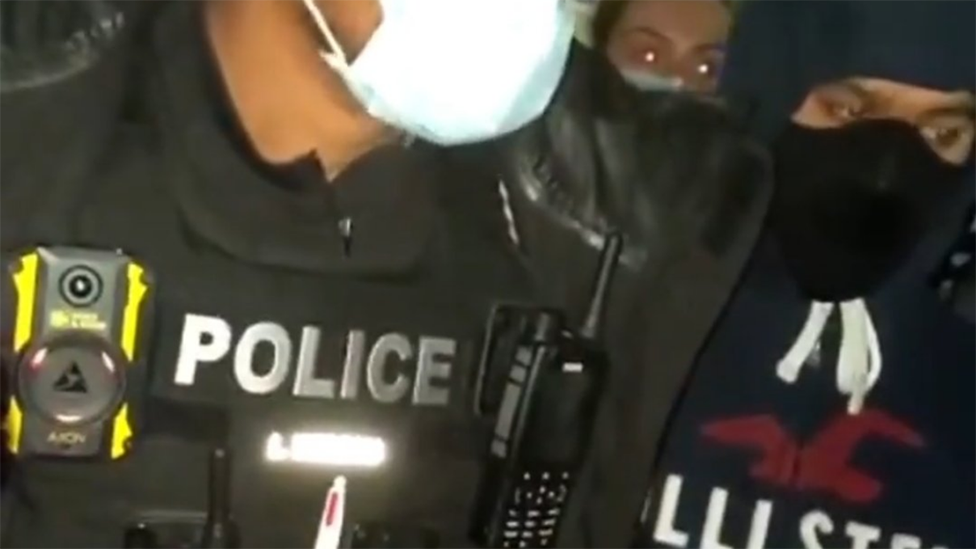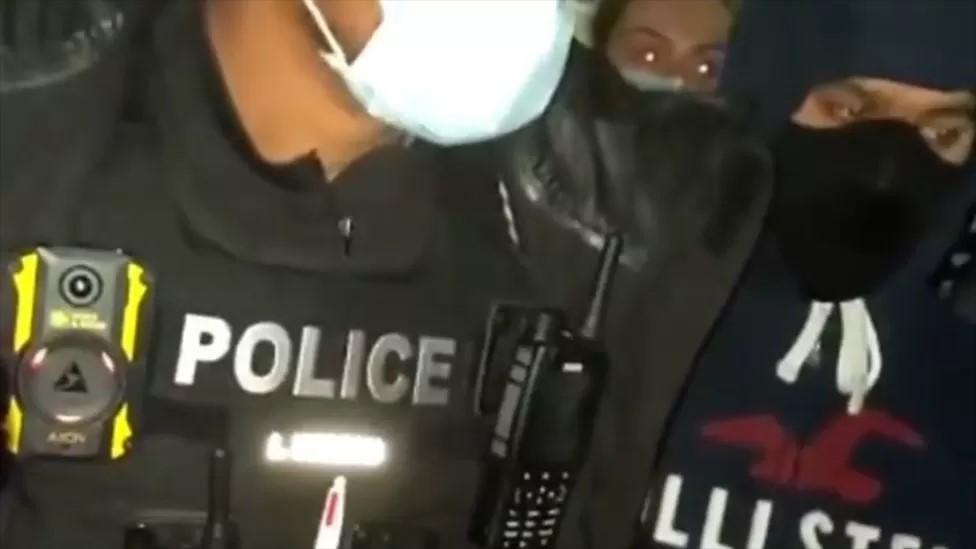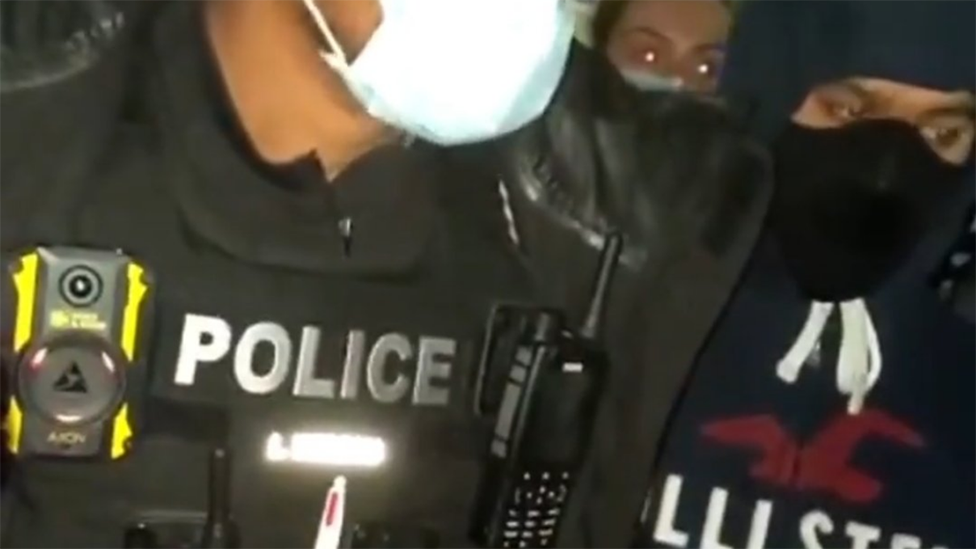Anger over case against headwear row police sergeant
- Published

Protesters gathered outside Perry Barr police station in October 2021
An organisation representing police officers says a gross misconduct case should never have been brought against a sergeant who removed the head covering of a Sikh man in custody.
At a misconduct hearing on 1 August, the officer was cleared of wrongdoing.
But West Midlands Police Federation has since said the matter should never have reached that stage and took too long to be resolved.
In response, the police watchdog has defended the process.
The Independent Office for Police Conduct (IOPC) launched an investigation when the Sikh man lodged a complaint against the officer's actions of October 2021.
He said his patka was forcibly removed in the custody suite at Perry Barr police station in Birmingham and he had been left traumatised as a result, calling himself the victim of a "racial hate crime".
Protests were staged outside the station days later, with West Midlands Police apologising for distress caused.
Dave Hadley, WMP Federation discipline lead, called the apology "an absolute disgrace" as a live investigation was under way.
His criticism went further still, saying CCTV of the events had been immediately available and clearly established no misconduct had taken place.
But despite that, he said, the unnamed officer had to wait 21 months until the misconduct hearing, suffering "untold damage" as a result.
Richard Cooke, chairman of the regional Federation, added the organisation was "quite outraged" the case went before a panel, and expressed concern the community had been misled.
The misconduct hearing earlier this month concluded the officer did not breach professional standards during a legitimate search, with that finding including considerations over the use of force, respect and courtesy, and equality and diversity.
Detailed findings from those proceedings, published on Thursday, also expressed misgivings about the need for a case, citing "bewilderment" and "alarm".
'Untie a knot'
The misconduct panel stated the CCTV footage showed the sergeant did not rip the patka off, but attempted to untie a knot at its rear but its wearer "continued to struggle and to move his head and body around".
The detained individual made the situation deteriorate and the use of force a "necessity", the report stated.
It said the individual "sought to portray himself as an unfortunate victim of wrongful arrest" and "the requirement to remove the patka for a routine search" provided him, it said, "with an opportunity to make a more serious claim that he was a victim of a racial or religious hate crime".
The panel decided "it was more likely" he preferred "not to replace his head covering because he knew there were cameras in the custody office which moments earlier he had played to".
The panel also said it was surprised at the decision to bring disciplinary proceedings against the officer "given the availability of very good CCTV evidence which contradicted the substance" of the complaint.
The report added the panel was left "bewildered and somewhat alarmed" there had been concerns of an improperly conducted search when other parties would agree it was necessary to check items were not secreted under headwear or in hair.
'Sensitive issues'
Mr Cooke said the fact the hearing was even convened had potentially "reinforced the idea within the community that there was something more" to the case than there was.
Police misconduct was not condoned, he said, "but it must be acknowledged we have a job to do and it's difficult and it will interfere with some sensitive issues".
He added there must be understanding that frontline officers were "doing a job and there are legitimate reasons for searches and you can't just pat someone's head as things can be secreted".
He said while "we totally understand community concerns" they had perhaps "been duped", erroneously "jumping on the bandwagon with a false narrative".
A spokesperson for the IOPC said: "We have fulfilled our legal obligation under the Police Reform Act and if anyone wants to challenge that or believes we have breached it [they] should follow the established procedure."

Follow BBC West Midlands on Facebook, external, Twitter, external and Instagram, external. Send your story ideas to: newsonline.westmidlands@bbc.co.uk , external
Related topics
- Published3 August 2023

- Published28 October 2021
